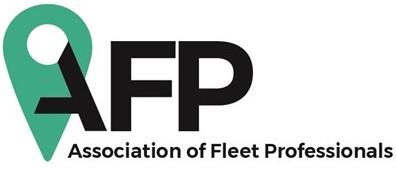Interview: Why fleets need to adapt to meet changing business needs
 Back
BackIn the next few years, fleets will have to adapt to a number of key trends that are reshaping the automotive industry and changing the way businesses operate.
For John Collins, Sales Director with Enterprise Flex-E-Rent, the three core issues facing the market are uncertainty, the impact of technology and the demands of compliance.
He says: “Uncertainty is key. The UK is facing considerable flux and more is likely depending on the outcome of Brexit negotiations.
“This is shaping purchasing patterns and encouraging customers to build-in options. Many end customers are unsure of demand and keeping plans short term, which may affect their suppliers’ decision-making when it comes to how they invest in vehicle assets.”
At the same time, fleets have to ensure they can keep pace with technological change, he says, as it is driving efficiencies, sustainability and safety, through disruptive technology such as autonomous vehicles changing the nature of business travel.
But a key underlying trend sits at the foundation of effective fleet management – compliance.
Collins says: “Compliance with legislation will increase and become more complex as organisations operate within an increasingly global economy with a number of different legislative systems.”
This complexity and uncertainty, along with the difficulty of making long-term vehicle investments when technology is advancing so quickly, has increased interest in the role of flexible rental within businesses.
Companies need to consider important questions when they are looking at introducing flexible rental:
- A first key point is to understand how much flexibility the fleet needs. If there is a very clear requirement for a number of vehicles, then longer-term contract hire may be a better solution.
However, committing to vehicle requirements several years in advance is becoming increasingly difficult.
Collins says: “There is no flexibility built into the agreement so any unforeseen events over that period can be extremely costly. That’s why flexible rental is increasingly popular right now given the current economic and political uncertainty, as well as products like Enterprise’s Fix & Flex Advance that offer long-term contracts with lower charges if the vehicles are returned early.”
This is particularly important for companies that are affected by seasonal demand.
If a rental partner is required, it is important to talk to them early to ensure the right supply of vehicles at the right time.
For example, a courier business and a grounds maintenance firm will have vastly different requirements and need vehicles at different times of the year.
- There are also financial issues to consider, says Collins. Under new accounting rules, rental will be the only off-balance-sheet funding option for vehicles.
Collins adds: “That makes it even more attractive to businesses looking to improve their gearing ratios.”
It is also worth considering how a rental partner sources its vehicles to understand how it can adapt to your specific requirements as the business expands.
Collins says fleets should question any rental supplier closely about service levels.
“Ask what systems the provider has in place to ensure your business receives exceptional service every time, he says, “It’s also vital to ask how the rental company can provide vehicles that have the specialist conversions and equipment that you need,” he says.
“You should look for a rental supplier with expertise in your field that can offer consultancy and guidance on the best vehicles and equipment for the job.”
This includes a supplier commitment to offering appropriate replacement vehicles to cover downtime, along with support on a range of other operational issues, such as end of rental charges for wear and tear and how refuelling is charged.
Collins says: “Enterprise Flex-E-Rent offers a simple ‘empty to empty’ system, which means vehicles are both rented and returned with minimal fuel. It means no fuel charges and no confusion.”
- Finally, companies need to consider the financial strength of their partner to ensure it can acquire the specialist assets customers need.
Collins adds: “Are they prepared to invest in new technologies to give you the opportunity to establish how they may fit within your fleet?”
- John Collins, Sales Director with Enterprise Flex-E-Rent, will be presenting on how innovations in vehicle hire can make businesses more efficient at Fleet Management LIVE on October 3-4 at the NEC, Birmingham.

